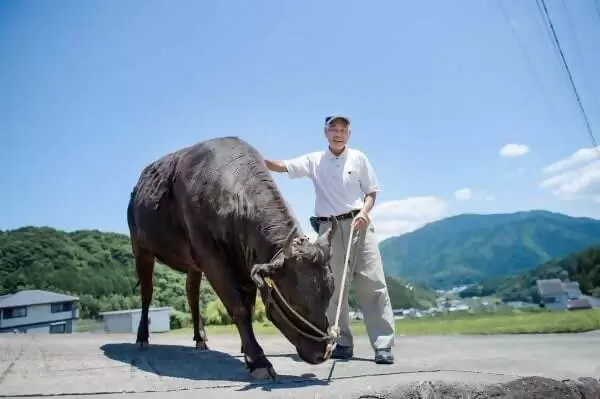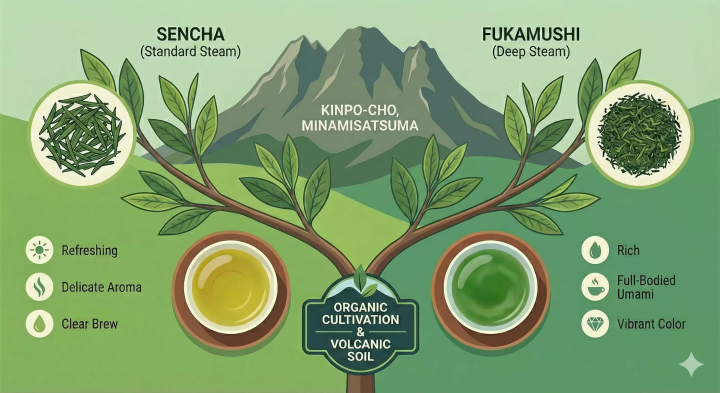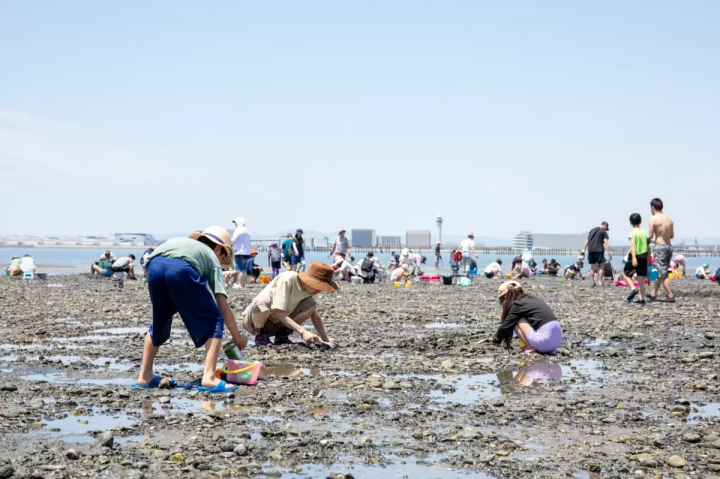Japanese Pharmacy Basics: Prescription Record Books And Generic Medicine

When you take your prescription to a Japanese pharmacy, you'll be asked if you have your okusuri techo, or prescription record book, with you. In this article, we introduce what this medicine handbook is and why is it important. We also explain what generic medicine is like in Japan.
Questions You Might Be Asked at the Pharmacy in Japan
To get medicine in Japan, you usually need to visit the doctor and receive your prescription, then head to the pharmacy to pick it up. Once there, you might be asked such questions as, "Do you have your 'okusuri techo' (prescription record book)?" or "Would you like to switch over to generic medicine?"
What exactly is an okusuri techo and what is generic medicine like in Japan? We explain what they are, along with some of the advantages of using them.
What is an Okusuri Techo?
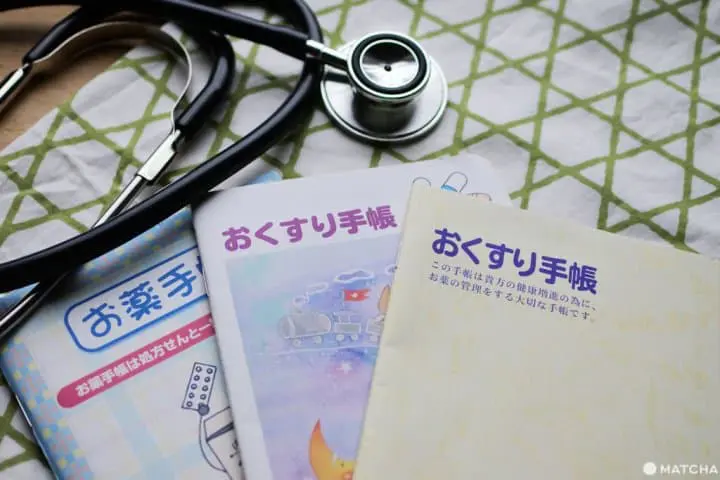
Known as "okusuri techo" in Japanese, this small booklet for patients that contains information about the medicine you've taken in the past and any medications you're currently on. It means "prescription medicine record book" when translated roughly into English.
This book provides a detailed record of each prescription, showing the medicine's dosage, its prescribed period of use, how it should be taken, and any side effects of the drug. It also lists any allergies and the medical history of the patient, including negative reactions to medication.
When your prescription gets filled, you'll receive a small seal listing the basic information of that medicine. Please be sure to display it in your medicine record book.
The next time you go to the pharmacy, please present your book to the staff. Before filling your prescription, the pharmacist will check to see what kind of medicine you've previously taken and which medication you're currently using.
The Advantages of Using a Medicine Record Book
1. Avoid Duplicate Prescriptions and Side Effects from Taking Multiple Drugs
When you're visiting several hospitals and are being seen by more than one physician, the chances of duplicate prescriptions can occur. However, when the pharmacist sees your medicine record book, they can make any necessary adjustments and avert this problem.
2. Prescriptions Are Filled after Checking a Patient's Medical History
If you have a medicine record book, you can list any medication allergies you might have. By understanding a patient's allergy record, a pharmacist can fill your prescription and ensure that any future allergic reactions don't occur.
3. It's Convenient while Traveling and during Natural Disasters
In an emergency situation during a trip or in times of natural disasters, you might need some medicine. If you have a medicine history book, the pharmacist will have all the necessary information required to fill your prescription properly.
A Convenient Medicine Record Book App

Graphic image courtesy of EPARK Medicine Record Book App
There are many advantages to having a medicine history book. However, there might be times when you forget to bring it with you to the pharmacy.
With this in mind, we highly recommend using a medicine history book app! Just download the app and enter your date of birth and your health card number. You only need to register once.
In addition to solving the problem of forgetting your medicine history book, this app has many other advantages.
Advantages of the Medicine Record App
1. You Can Send Your Prescription Directly to the Pharmacist
First, register with the pharmacy you usually deal with. Then, after receiving your prescription at the hospital, take a photo of it and send it directly to the pharmacist.
Upon receiving this picture, the pharmacist can immediately start filling your prescription, which means a shorter waiting time for you.
2. It Has a Convenient Reminder Button
If you link this app to your cell phone calendar, it'll remind you when to go and get your medicine, when to take your medication, and so on.
3. You Can Manage All Your Information in One App
With this app, you can store and manage information about prescription drugs and over-the-counter drugs all in one place. It also makes it possible to keep medicine history books for each member of the family together for easy access.
The writer of this article actually uses an app called Medicine History Book Plus (Japanese). It allows you to manage your health on a day to day basis.
There's also an app called EPARK Medicine History Book App (Japanese). It has various functions including one for collecting points.
Each app features its own unique characteristics. If there's one that looks useful, please download it and give it a try.
How is Generic Medicine in Japan?
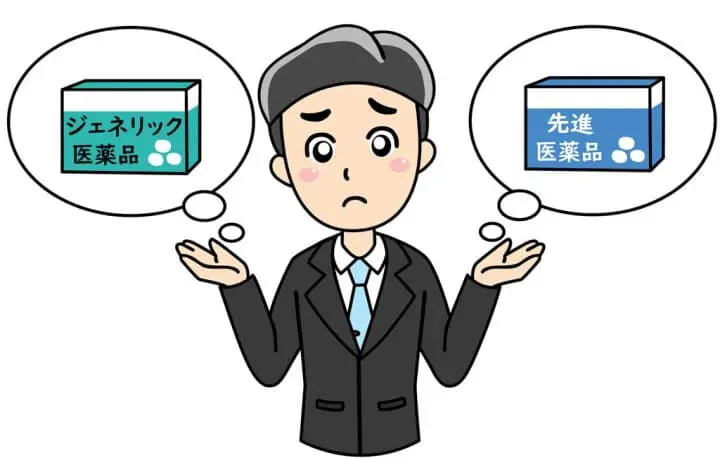
Photo by Pixta
When it comes to generic medicine, some people may have had this term explained to them at the pharmacy.
Generic medicine ("kohatsu iyakuhin" in Japanese) has the same active ingredients and effectiveness as an original, brand-name drug ("senbatsu iyakuhin"). When the patent for the original drug expires and approval has been received from the Ministry of Health, Labor and Welfare, the pharmaceutical company can then officially market this generic drug.
Despite containing the same active ingredients as the original drug, generic medicine is cheaper in price.
Why is Generic Medicine Cheaper?
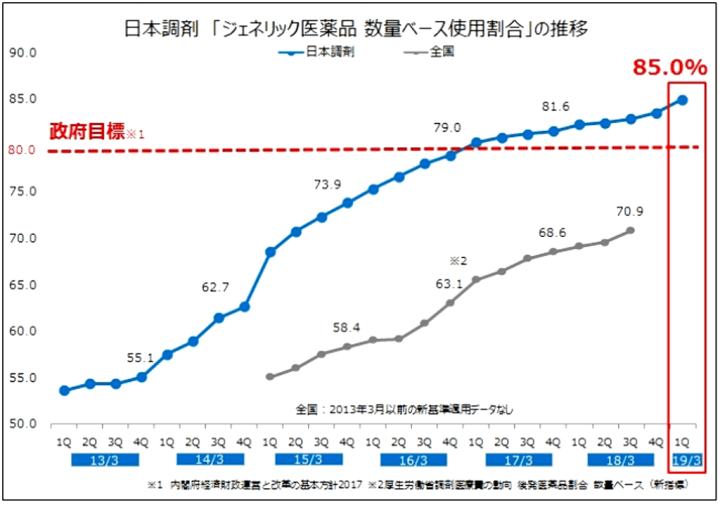
Photo by PRTIMES
Pharmaceutical companies often invest large amounts of capital and spend years developing new drugs. If the company is successful, they can receive a patent that lasts for twenty to twenty-five years. This gives them exclusive rights to sell the drug in the marketplace for an extended period.
On the other hand, generic medicine is based on an already existing medicine. So the drug company doesn't need to invest as much money, meaning they can save on upfront costs such as clinical testing. These savings get passed on to the consumer.
In Japan, generic medicine has been in use for many years. In 2017, the news reported that 80% of the population had used generic medicine.
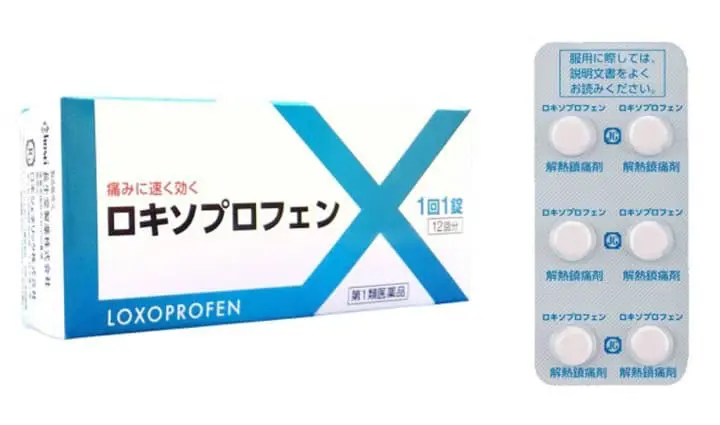
Photo by PRTIMES
Some generic medicine has even made improvements on the original medication by changing its shape and form. The new variant is easier for the patient to use.
However, the drug's effectiveness and safety remain the same so that consumers can take the medication without any worries.
Patients can sometimes have an allergic reaction to additives in medicine. If you have any concerns about this, please refer to the official homepage of the Pharmaceuticals and Medical Devices Agency (PMDA). Their phone number is 03-3506-9457.
Learn More about Medicine in Japan and Use It Safely
For newcomers or those not used to medical care in Japan, getting a prescription from your doctor and then taking it to the pharmacy might seem like a complicated and daunting task. However, the whole process will go more smoothly if you have a better understanding of what questions you might be asked. Knowing terms like "okusuri techo" (prescription medicine record book) and how generic medicine should help make it easier to get the health care you need in Japan.
Additional information:
Ministry of Health, Labour and Welfare Homepage
Japan Generic Medicines Association
Read also
Main image courtesy of Pixta





































![[Kagoshima] Overcoming 12 Years of Hardship: Walking through Minamisatsuma City, the sacred land where the monk Ganjin landed](https://resources.matcha-jp.com/resize/720x2000/2026/02/21-259481.webp)
